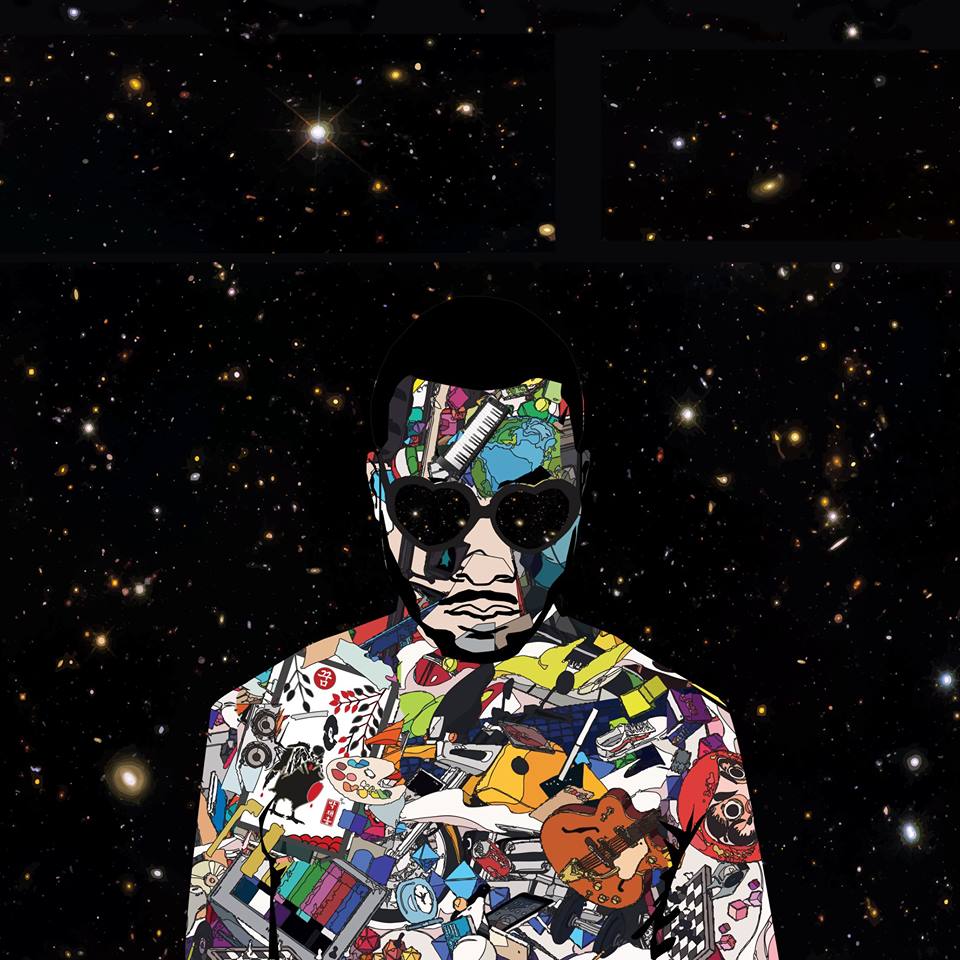Raised in Houston on a diet of everything from The Beatles to Aretha Franklin, Seven Davis Jr. found his way into LA’s flourishing house scene in his early adulthood, and uses the influence of both locations to create a sound completely his own. If you heard his February release, ‘Wild Hearts/When Somebody Loves You’, you’ll have picked up the fact that he’s a musician as much at home in the past as in the future. His specialised brand of funk-filled disco-house is as reminiscent of Frankie Knuckles as it is of Gil Scott-Heron. With each new output the singer and producer pushes his art further into the unknown, finding new methods of bringing classic soul, funk and disco into the progressively higher-octane present. On his debut album Universes he descends to pass on his knowledge of how to spread his starry-eyed optimism amongst sentimental and disenchanted earthlings.
Lying under the electronic crust of every track on the album, resides a colloid of a thousand genres, with degrees of jungle, pop, R&B and reggae all bubbling to the surface. From subaquatic acid jazz of opener ‘Imagination’, Seven navigates his way through the frenzied, intergalactic muzak of ‘Freedom’, the trip-hop and trumpets of ‘Sunday Morning’ and he’s barely half way through the track listing. ‘Everybody Too Cool’ is funk of the Stargard and Rose Royce variety, sent boogalooing into the present by Seven’s flair for reuniting contemporary dance music with its own history. It also serves to highlight a sad reality of the 21st century human condition – "people don’t dance no more, everybody too cool for school". ‘Good Vibes’ could be the antidote to this affliction, as, true to its title, it offers three minutes of palpitating post-disco featuring Julio Bashmore.
Whilst most of his material sees Seven using the past to propel himself into the future of dance music, the unceasing variability of each song can start to feel a little abrupt. ‘No Worries’, for instance, wouldn’t sound at all out of place on Purple Rain, but it feels clumsy in this context. Similarly, the politically minded ‘Fighters’ could’ve been ripped right out of Burning Spear’s songbook, but loses some of its potency amongst the shut-up-and-dance hubbub which surrounds it.
The presence of such a comprehensive range of genres in Universes implies a level of instinctive appropriation, the effect of such a diverse list of influences. Subsequently, despite the disparities between many of the tracks, each one somehow remains so entirely peculiar to Davis himself that the album is lent some semblance of stability. The message is simple: less disillusion more disco, an axiom it makes good on. Universes is not quite grasping the heights of the Horsehead Nebula, but the novelty of Seven’s poly-genred bravura certainly leaves it reaching in that direction. If you’re looking for a happy medium between well-crafted house and happy-go-lucky slur-along songs, take some direction from this man, because he does it with serious panache.
<div class="fb-comments" data-href="http://thequietus.com/articles/18312-seven-davis-jr-universes-review” data-width="550">


